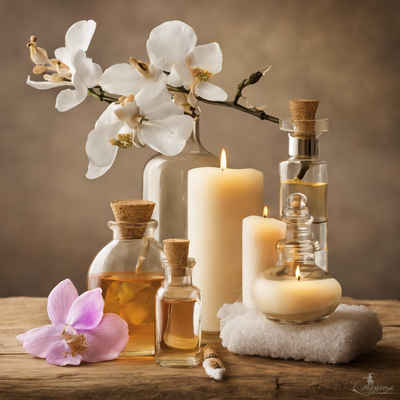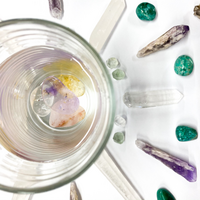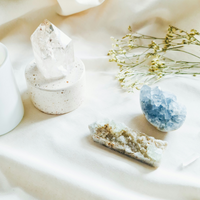
9 Tips For Aromatherapy Newbies
Reflecting on my initial encounter with aromatherapy a few years ago, I recall being captivated by the world of essential oils and eagerly experimenting with them. In hindsight, I recognize the importance of conducting thorough research before delving into aromatherapy. Here, I share the guidance I wish I had received as a novice in the realm of aromatic therapy:
Buy One or Two Aromatherapy Books
Begin your aromatherapy collection with just one or two books. Choose resources that offer general information, providing a foundation and helping you explore the areas that capture your interest the most.
Join Aromatherapy Discussion Forums
For those new to aromatherapy, Facebook Groups, Instagram pages, and various forums are excellent sources. Explore previous discussions, pose inquiries, and gain insights from others.
Choose Five or Ten Essential Oils to Start
While the temptation to purchase a variety of essential oils may arise, it's advisable to start with just five or ten. Essential oils can be a significant investment, so consider experimenting with a few initially. If you find yourself committed to aromatherapy, you can always expand your collection later.
Make Sure to Buy 100%, Pure, Unadulterated Essential Oils
Select essential oils from a reputable and well-established manufacturer when making a purchase. It's crucial to note that synthetic, fragrance, and perfume oils are not authentic essential oils, as they consist of artificial chemicals and lack any aromatherapeutic value.
Buy at Least One Carrier Oil
For most topical aromatherapy uses, it is necessary to mix essential oils with a carrier oil. Suitable general-purpose carrier oils include sweet almond oil, sunflower oil, and grapeseed oil. Opt for carrier oils of cosmetic grade and use only a few drops of essential oil(s) per ounce of carrier oil.
Store Your Oils Properly
Store essential oils exclusively in dark glass containers, ensuring the lids are tightly closed due to their volatility. Keep both essential oils and carrier oils away from heat and light. Considering that carrier oils may eventually go rancid, it's advisable to purchase smaller quantities.
Learn How to Do a Patch Test
Adverse reactions to essential oils may occur due to allergies or sensitization over time. Conducting a patch test is a useful method to assess potential reactions to a specific essential oil. Familiarize yourself with the process of performing a skin patch test before using a new oil topically.
Don't Use Aromatherapy with Children or Pets
Refrain from using essential oils on children, pets, or during pregnancy or breastfeeding until you are well-versed in essential oil knowledge and safety precautions. Take extra caution with essential oils around cats, as they can be particularly sensitive to them. Ensure that essential oils are stored out of the reach of children.
Avoid ingesting essential oils.
While you may encounter conflicting advice regarding the internal consumption of essential oils, it is advisable to refrain from doing so. Certain essential oils, deemed safe for topical application, can pose toxicity risks when ingested. Moreover, some essential oils may interact adversely with prescription or over-the-counter medications. As you delve into the realm of aromatherapy and broaden your understanding, your confidence in utilizing essential oils will grow. With a plethora of possibilities to explore, prioritize safety and enjoy the journey!





